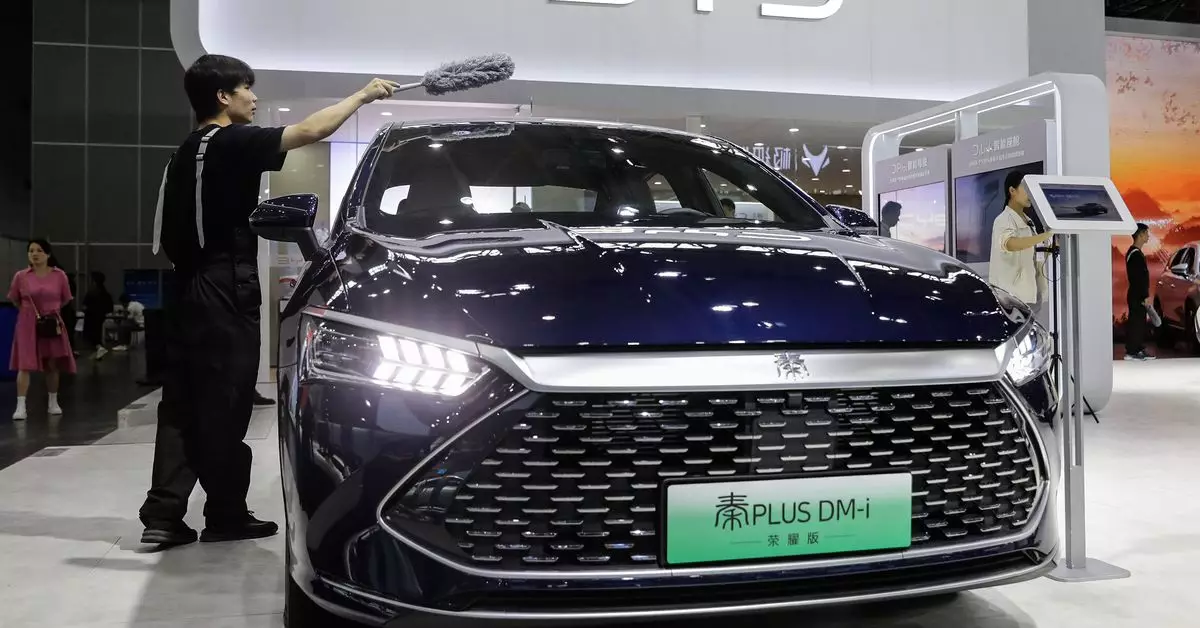The Biden administration has initiated significant regulatory changes concerning the importation of technologically connected vehicles, particularly those with software from “countries of concern,” most notably China. These new rules aim to enhance national security by mitigating potential threats posed by foreign adversaries exploiting vehicle technologies. This development represents not merely a shift in policy but a potential seismic movement in the automotive market landscape, which could have far-reaching impacts on consumers, manufacturers, and international relations.
At the core of these proposed regulations is an acute concern regarding national security. The government has raised alarms about the vulnerabilities associated with connected vehicles—those equipped with Bluetooth, Wi-Fi, cellular, and satellite communication capabilities. The potential for sabotage or surveillance through the exploitation of these technologies could pose risks not only to individual drivers but also to the broader infrastructure reliant on automotive transport. The Biden administration’s proactive measures stem from an investigation by the Commerce Department, aimed at scrutinizing the implications of using Chinese-made software in American vehicles.
The motivations are clear: the U.S. seeks to prevent scenarios where foreign powers might commandeer control of vehicles or glean sensitive data from onboard systems. In an increasingly interconnected world, national security concerns are justified; however, the transformations required in the import laws will not be without repercussions.
The shift in policy will undoubtedly compel American automakers and suppliers to reassess their supply chains and technologies in the coming years. With deadlines set for the phasing out of Chinese-made software by model year 2027 and hardware by model year 2030, manufacturers will need to pivot quickly. This may incite a reallocation of resources to develop domestic alternatives or seek partnerships with non-Chinese entities.
Moreover, these restrictions come at a time when Chinese manufacturers such as BYD are emerging as formidable competitors on the global stage. For instance, the BYD Seagull has become highly attractive in the market due to its affordability and commendable range. The bleak prospect of U.S. manufacturers finding it difficult to maintain competitive pricing amid increasing tariffs and regulations raises questions about the future of innovation and vehicle development in the American automotive industry.
President Biden’s administration has not only proposed bans on vehicle software from certain countries but has also updated tariffs on imported vehicles, especially those from China. With tariffs reaching as high as 100% on electric vehicles, the market dynamics could transform dramatically. Such tariffs are intended to create a protective barrier to safeguard American industries, yet they could stifle competition, ultimately resulting in higher prices for consumers.
Additionally, as U.S. citizens may find imported vehicles considerably more expensive, domestic manufacturers could become complacent, removing the impetus to innovate and improve their product offerings. This conundrum draws attention to the delicate balance between maintaining a competitive market and ensuring national security.
The unfolding situation reflects a growing trend of economic nationalism, wherein countries prioritize internal security and local industries over globalization. However, this is not a unilateral development; Chinese officials have condemned the U.S.’s actions as a misapplication of national security to unfairly target Chinese enterprises. The geopolitical implications of these regulations extend beyond commerce; they complicate diplomatic relations and could escalate ongoing tensions between the two powers.
As the arms race for automotive dominance continues, the landscape of international trade in the automotive sector may shift dramatically. How the U.S. positions itself in relation to competitors, particularly those who can innovatively produce vehicles at a lower cost, will shape the future of the industry.
As the Biden administration moves forward with its ambitious new rules for connected vehicle imports, the ramifications for American automakers, consumers, and global relations are profound. The insistence on prioritizing national security may yield protective measures for domestic manufacturers but risks curtailing the dynamism of the automotive market essential for innovation. As we look to the future, only time will tell how the American automotive industry will adapt to these challenges and whether it can maintain a competitive edge in an increasingly interlinked marketplace.


Leave a Reply
You must be logged in to post a comment.